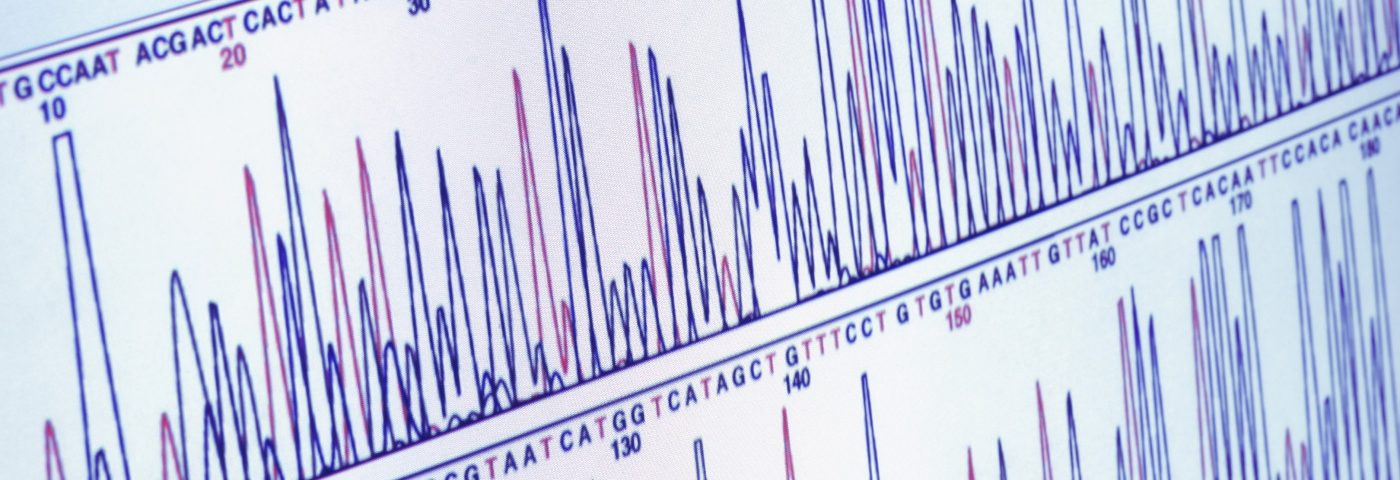Next-generation sequencing analysis for a panel of 15 genes identified disease-causing variants in only 10.4% of suspected cases of hemophagocytic lymphohistiocytosis (HLH), a new study reports.
The results highlight the need for investigation of other potential causes of HLH.
The study “Frequency and spectrum of disease-causing variants in 1892 patients with suspected genetic HLH disorders” was published in the journal Blood Advances.
HLH is characterized by excessive inflammation and organ damage due to an overactivation of the immune system, namely of T-cells and macrophages. Infants — newborns to 18 months — are affected more often, but HLH also can develop in children and adults.
The disease can be triggered by both non-genetic and genetic causes. According to the mutated genes — PRF1, UNC13D, STX11, and STXBP2 — four subtypes of familial HLLH are defined, types two to five.
Mutations in additional genes, namely LYST, RAB27A, and AP3B1, also can lead to HLH.
Despite its heterogenous genetic origin, at the clinical level distinct HLH-associated genetic mutations lead to identical symptoms.
The genetic diagnosis of HLH typically began with examination of the most commonly mutated gene in this condition, PRF1. Only if no mutations were found in PRF1, would other genes be tested. However, this approach is costly and time-consuming.
Next-generation sequencing (NGS) allows scientists to investigate multiple genes simultaneously, opening the development of target gene panels for several diseases.
The Cincinnati Children’s Hospital Medical Center (CCHMC) in Ohio implemented in September 2013 a NGS panel that includes 15 HLH-associated genes.
Now, a team led by researchers at CCHMC evaluated the impact of the new NGS approach in HLH diagnosis of 1,892 patients submitted for genetic testing. The age range of the group of patients was 1 day to 78 years.
Researchers first noticed that with the introduction of the NGS panel, the single-gene sequencing approach dropped significantly; single-gene PRF1 test orders decreased from 308 in 2013 to 21 in 2018. In contrast, HLH NGS panel kept constant test numbers from 2014 to 2018 (around 400 per year).
From the 1,892 NGS panel tests, a potential disease-causing genetic variant was identified in 227 patients. From this set, 197 samples had a definite molecular genetic diagnosis, corresponding to a positive molecular diagnostic rate of 10.4%.
Definite or likely disease-causing genetic variants were found more frequently in the PRF1 gene (52 patients, 26.4%).
Yet, mutations in other genes were detected more commonly than expected: 42 patients (21.3%) had definite or likely disease-causing variants in STXBP2 gene; 39 (19.8%) in the UNC13D gene; 12 (6.1%) in the RAB27A gene; nine (4.6%) in the LYST gene; and five (2.5%) in the STX11 gene.
The rarest mutations, found in three patients (1.5%), were located in the SLC7A7 gene.
Mutations in the X-chromosome were detected in 35 patients (17.8%). Twenty of them (10.2%) had disease-causing or suspected variants in the XIAP gene, 10 (5.1%) in SH2D1A, and five (2.5%) in the MAGT1 gene.
Overall, in this group of patients, 10 of 15 genes in the NGS panel were identified for HLH disease-causing, or likely disease-causing, genetic variants. The highest number of variants were found in the PRF1 gene.
The rate of genetic diagnosis was the highest for babies (before reaching 1 year-old), at 28.6%. Moreover, those diagnosed with familial HLH types 2–5 (genes PRF1, UNC13D, STX11, and STXBP2) tended to be diagnosed earlier — mean age of 8.4 months vs. 4.5 years with other genes.
Overall, “these results describe the largest cohort of genetic variation associated with suspected HLH in North America,” researchers wrote, emphasizing that “merely 10.4% of patients were identified with a clearly genetic cause by this diagnostic approach; other possible etiologies [causes] of HLH should be investigated.”
The team suggested that “as the field of genetics continues to make clinical advances, clinicians should continue to weigh the ease, cost, completeness, and timeliness of genetic panel testing options for patients with HLH.”

